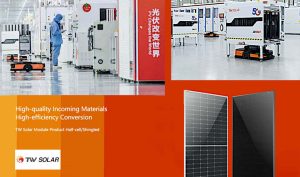Overview of Solar Panel Technology
Solar panel technology has been rapidly evolving, offering numerous benefits such as renewable energy, reduced carbon footprint, and lower electricity costs. As we approach 2024, several key advancements are expected to take place in this field.
Efficiency Improvements
Higher Energy Conversion Rates
The efficiency of solar panels, which is a measure of their ability to convert sunlight into electricity, is anticipated to see significant improvements. Currently, most commercial solar panels operate at an efficiency of about 15-20%. By 2024, advancements in photovoltaic (PV) materials are expected to push this efficiency beyond 22%, making solar panels more effective and appealing for both residential and commercial use.
Advanced Photovoltaic Materials
New materials like perovskite and tandem cells are being researched to enhance solar panel efficiency. These materials promise to absorb a broader spectrum of sunlight, thus generating more power from the same amount of sunlight.
Cost Reductions
Lower Manufacturing Expenses
The cost of producing solar panels is projected to decrease due to advancements in manufacturing technologies. This reduction in production costs will make solar panels more accessible and affordable for a wider range of consumers.
Economies of Scale
As the demand for solar panels continues to grow, economies of scale will further reduce the costs associated with solar energy, making it a more competitive alternative to traditional energy sources.
Improvements in Durability and Lifespan
Enhanced Material Quality
The materials used in solar panels are expected to improve, leading to longer-lasting panels. Currently, most solar panels have a lifespan of about 25-30 years. With advancements in materials, this lifespan could extend, providing better value over time.
Resistance to Environmental Factors
Future solar panels are likely to be more resistant to environmental factors such as extreme temperatures, humidity, and physical impact. This resilience will ensure consistent performance even in harsh weather conditions.
Size, Specifications, and Aesthetics
Compact and Flexible Designs
Solar panel technology is expected to evolve into more compact and flexible designs. This will allow for easier integration into various architectural styles and will enable installation in a wider range of locations.
Aesthetic Integration
Advancements in solar panel aesthetics, such as transparent or color-matched options, will make them more appealing for residential and commercial buildings concerned with visual impact.
Conclusion
The solar panel technology landscape is set for significant transformations by 2024. With improvements in efficiency, cost, durability, and aesthetics, solar panels are becoming an increasingly attractive option for sustainable energy. These advancements will play a crucial role in shaping the future of energy consumption and environmental conservation.
For more detailed information on the advancements expected in solar panels by 2024, you can visit Tongwei Solar.
